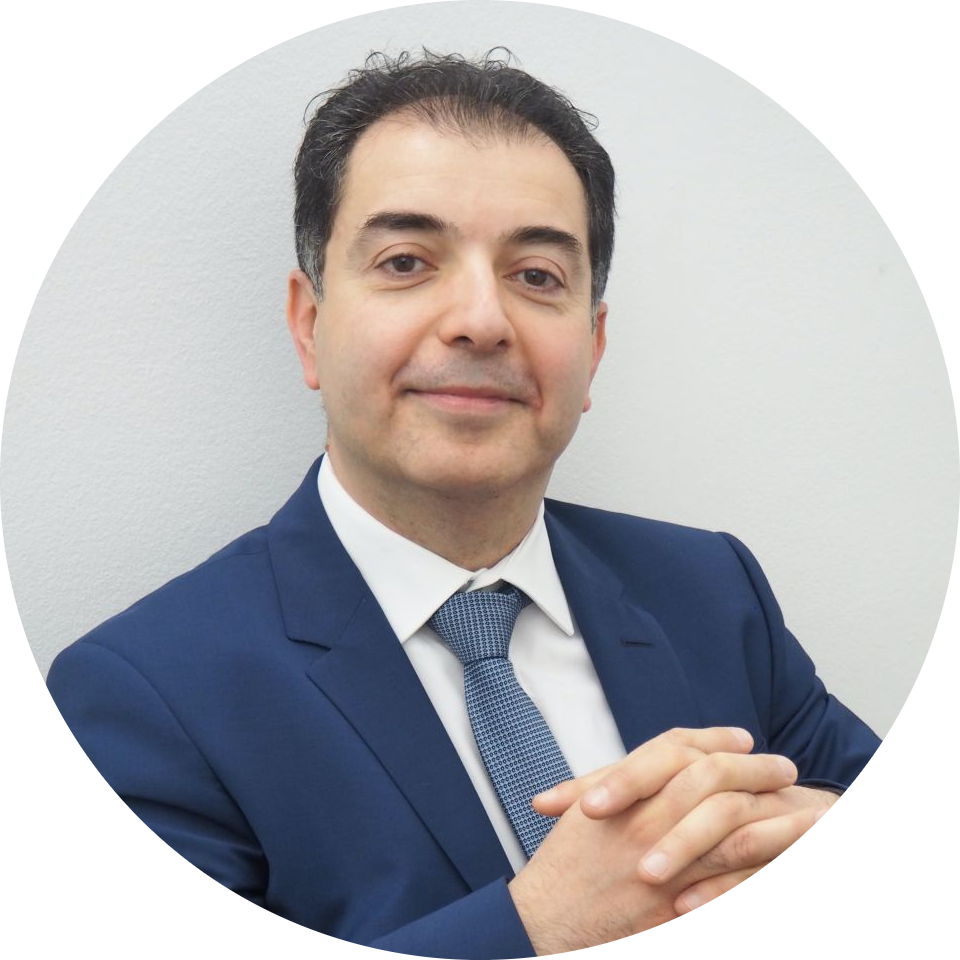PRK Vs LASIK: What’s The Difference?
Laser-assisted in situ keratomileusis (LASIK) and photorefractive keratectomy (PRK) are common and safe procedures that help to correct vision. Each procedure uses lasers to correct vision and can be incredibly effective ways to improve vision.
PRK has been around longer than LASIK and was the first procedure to use lasers instead of a blade to correct vision. During PRK, a surgeon will remove the top layer of the cornea and will then use lasers to reshape the rest of the cornea, correcting eyesight.
With LASIK, a surgeon will create a flap in the cornea, which is lifted. The surgeon will then use lasers to reshape the cornea and correct the patient’s vision. The flap will then be lowered back onto the eye.
What is LASIK?
LASIK is a surgical procedure that is done in a private clinic. It is not usually available on the NHS, as it is considered an elective procedure. The first thing a surgeon will do is assess your eyesight, examine your eyes and give you advice on which surgery option is the best for you.
The procedure will begin with your surgeon cleaning and numbing your eyes with drops. Your surgeon will fit a device to your eye that will prevent you from blinking. You may feel a little pressure or discomfort, but this will be minor, and you will not feel any pain.
A small flap will then be made in the top layer of the cornea. An excimer laser is then used to reshape the cornea under the flap, correcting any issues with the eye curvature that can cause poor vision. The flap will then be replaced over the cornea.
What is PRK?
The first steps of PRK are similar to that of LASIK. You will be given numbing eye drops and fitted with a device to prevent blinking and keep your eye still. Your surgeon will then remove the entirety of the epithelium, the top layer of the cornea.
The surgeon will then use an excimer laser to reshape the cornea and improve vision. Since the entire epithelium is removed during the procedure, a protective contact-lens-type bandage will be applied to help the tissues heal until the epithelium grows back. This bandage will usually be removed within a week.
PRK Vs LASIK
Both surgeries can result in 20/20 or better vision and are equally safe. There are some key differences between the surgeries. PRK will take longer for the eye to fully heal, around one week to a month, while LASIK patients will usually see a difference in their vision within a few hours. This is because of the complete removal of the top layer of the cornea in PRK, compared to creating a flap in LASIK.
People who undergo PRK may also experience some minor pain and discomfort during the healing process. LASIK patients will usually experience little to no pain during the healing process. It is also essential for patients to consider how usual activities will impact the surgery and recovery. PRK is usually recommended for anyone that is extremely active or likely to experience an eye injury. This is because the corneal flap created during LASIK can be prone to damage if an eye injury occurs.
LASIK Recovery
LASIK recovery is normally quick. Patients may experience improved vision as quickly as a few hours after surgery. Some patients report a burning sensation in the hours after LASIK, but this should be minor and will disappear within a few hours. If you find yourself in significant discomfort, you should contact your surgeon for their advice as soon as possible.
Your surgeon may offer you eye drops that will keep your eyes lubricated and comfortable while your eyes heal. This can be beneficial to prevent or treat any irritation that occurs as a result of the surgery. You should be fully recovered within a few days of the procedure.
PRK Recovery
After PRK, your cornea will be covered with a protective bandage contact lens while it heals. This bandage may make your vision blurry until it is removed within a few days to a week after surgery. You may also experience irritation and light sensitivity.
Your eyes should be fully healed within a month of the surgery. Your surgeon will usually schedule regular check-ups during this time to ensure that everything is healing as it should. They may also prescribe lubricating and pain-relieving eye drops or tablets to help combat any ongoing pain or irritation after surgery.
LASIK Side Effects
Any surgical procedure comes with some risks and side effects attached. Usually, these will be minor and will resolve within a few hours or days after surgery. Some common side effects of LASIK include:
- Dry eyes, which may last for up to six months after surgery. In rare cases, the reduction in tear production may be permanent. This side effect can usually be effectively treated with eye drops
- Minor pain, itching, or burning that will usually resolve within a few hours or days
- Red patches in the eye, though this is uncommon and will usually fade within a couple of weeks
- Light sensitivity
- Glare or halos around light impacting your night vision
- Infection or vision loss, though this is exceedingly rare
LASIK is a common and safe procedure that is carried out successfully every day. With the proper care and treatment, the vast majority of patients go on to experience 20/20 or better vision with little to no side effects.
For more information on how to manage potential side effects of LASIK, we recommend reading our article: How to manage dry eyes after LASIK.
PRK Side Effects
Some of the possible side effects of PRK are similar to LASIK:
- Minor pain – which is more commonly seen in PRK patients as their cornea heals
- Gritty or itchy eyes
- Halos around light at night
- In very rare cases, cloudy vision, infection, or vision loss can occur. These severe side effects are incredibly rare
PRK And LASIK
PRK and LASIK are both safe, effective ways to improve your eyesight. Both involve the use of lasers to correct the shape of the cornea. The key differences are that LASIK creates a flap to allow for quicker recovery time, while PRK removes the top layer of the cornea entirely. This is why LASIK has a much speedier recovery time of a few days, or even hours, compared to up to a month for PRK.
The surgery you undertake will depend on a range of factors, including your corrective prescription level and how healthy your cornea is. Those with higher prescriptions or with thin or irregular cornea will often be better suited to PRK. Those who play competitive sports may also benefit from PRK, as this type of surgery removes the possibility of the corneal flap from becoming injured.
Book A Consultation For Laser Eye Surgery
If you want to find out more about the benefits of PRK and LASIK, and for advice on which procedure will suit you and your eyesight best, contact us here at Eye Clinic London for a consultation.
Share This Story, Choose Your Platform!
Suffering from dry eyes?
Take our 2-minute online dry eye assessment to see if we can help alleviate your symptoms and tackle your condition
Our most popular treatments
What our patients say…
“As soon as I met Mr Hamada, I knew I was in safe hands. He is an expert in his field, and very reassuring. His work was impeccable, and I would thoroughly recommend him to anyone wanting a professional, kindly, expert service.”
“I came all the way from the US to be evaluated by Mr. Samer Hamada who provided me with a world-class experience. I was treated with technology that doesn’t exist in the United States. My vision improved significantly since the surgery. Mr. Samer Hamada is definitely a Keratoconus expert.”
“I am glad to be with Mr Hamada. I am glad to be examined by Mr Hamada who acts responsibly and professionally. I never had this experience before from a previous ophthalmologist. I am thankful to Mr Hamada for the successful diagnosis and treatment of my case.”
“What a Consultant. Dr. Hamada is a man who was born for this profession. As soon as we walked into the room you felt that you had met a man who was gentle and kind. His demeanour was of a man who knew his trade. He speaks in a way that you will understand. He explains exactly what is wrong and the way he will help fix it for you.”
“Mr Hamada’s London Eye Care and his team are a delight. Nothing was too much trouble and the help, support, advice and guidance before during and after the surgery was all world class. I have worn glasses since the age of 13 years and had the onset of cataracts for the last five so it has all been very much a life changing experience to be free from glasses once more.”
“Mr Hamada, his assistant Joanna and his ophthalmic technicians provide a caring, efficient and high quality service. From the admin through to the surgical aftercare we were very well looked after and we had a high degree of confidence in Mr Hamada’s abilities. Our daughter’s cataracts have been corrected (under general anaesthetic) and her quality of life has improved substantially. You also feel well cared for throughout – the human touch is vital in healthcare, but not always delivered, so well done and thanks to all of the team.”
“We were referred to Dr.Hamada by one of the UK experts. The expert himself admitted that Dr.Hamada was better than him!! We were not disappointed at all. Dr. Hamada was excellent with my child. His communication skills and knowledge were exemplary. He gave us clear management plan and would not hesitate to recommend him.”
“Dr Hamada is an excellent, highly competent doctor with a very kind and sympathetic manner. His reputation for successfully treating dry eye patients seems unparalleled. His team are all extremely friendly and helpful, especially Dr Hamada’s PA Joanna, making the overall experience better than anywhere else I’ve been!”
“Appointment setting and follow-up were very efficient and well managed. Mr Hamada was kind, reassuring, knowledgeable and had a very warm manner with my young son, making him instantly feel at ease. I feel that we can trust him and that he will finally be able to solve my son’s long-term eye problems that have stumped other eye doctors.”
We have replaced some of the images of real patients who provided these testimonials to protect their privacy.

About the expert
Mr Hamada | Consultant Ophthalmologist and Corneal Surgeon
MD, MSc, DO (hons), FRCSEd, FRCOphth I am Samer, founder and consultant ophthalmic surgeon with over 20 years’ experience in ophthalmology. I am a world-renowned specialist in cornea, cataract and refractive surgery. I’m not only a leading surgeon but also the only dual fellowship trained in corneal diseases in children from reputable institutions in the UK. At Eye Clinic London I work closely with other consultant ophthalmologists, optometrists and orthoptists to achieve the best outcomes for our patients. Our main aim is to make sure our patients get the safest and best treatments available to them. We put your safety before anything else so you can rest assured that if you choose us you will be in the best and safest hands.












